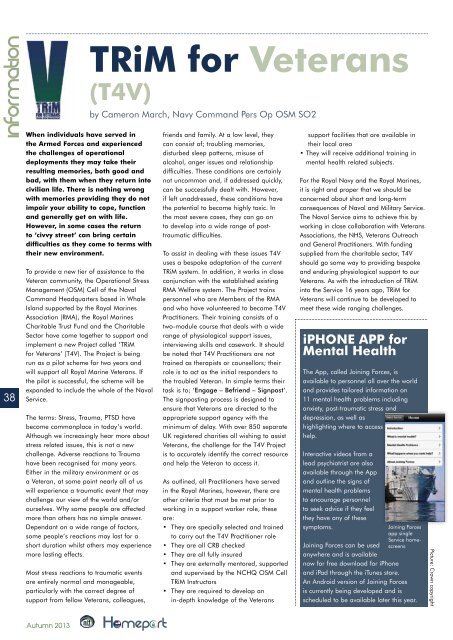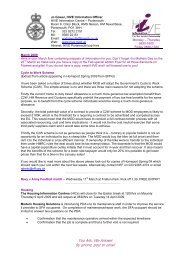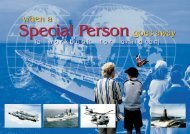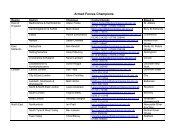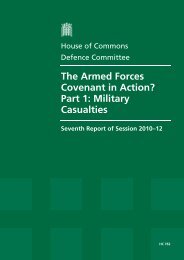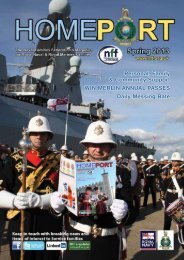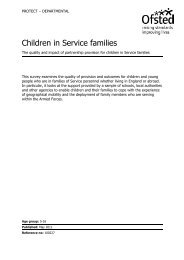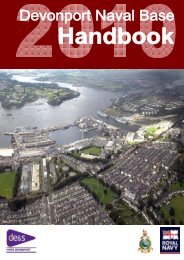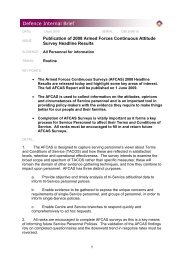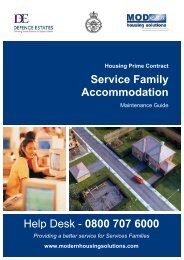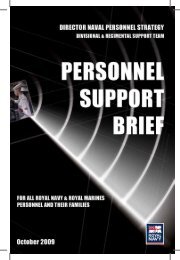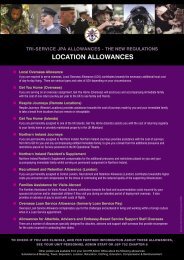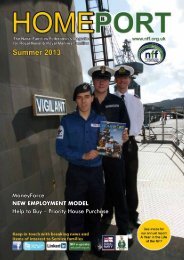HMNB CLYDE Armed Forces Covenant Win a Merlin Pass - NFF
HMNB CLYDE Armed Forces Covenant Win a Merlin Pass - NFF
HMNB CLYDE Armed Forces Covenant Win a Merlin Pass - NFF
You also want an ePaper? Increase the reach of your titles
YUMPU automatically turns print PDFs into web optimized ePapers that Google loves.
information38TRiM for Veterans(T4V)When individuals have served inthe <strong>Armed</strong> <strong>Forces</strong> and experiencedthe challenges of operationaldeployments they may take theirresulting memories, both good andbad, with them when they return intocivilian life. There is nothing wrongwith memories providing they do notimpair your ability to cope, functionand generally get on with life.However, in some cases the returnto ‘civvy street’ can bring certaindifficulties as they come to terms withtheir new environment.To provide a new tier of assistance to theVeteran community, the Operational StressManagement (OSM) Cell of the NavalCommand Headquarters based in WhaleIsland supported by the Royal MarinesAssociation (RMA), the Royal MarinesCharitable Trust Fund and the CharitableSector have come together to support andimplement a new Project called ‘TRiMfor Veterans’ (T4V). The Project is beingrun as a pilot scheme for two years andwill support all Royal Marine Veterans. Ifthe pilot is successful, the scheme will beexpanded to include the whole of the NavalService.The terms: Stress, Trauma, PTSD havebecome commonplace in today’s world.Although we increasingly hear more aboutstress related issues, this is not a newchallenge. Adverse reactions to Traumahave been recognised for many years.Either in the military environment or asa Veteran, at some point nearly all of uswill experience a traumatic event that maychallenge our view of the world and/orourselves. Why some people are affectedmore than others has no simple answer.Dependant on a wide range of factors,some people’s reactions may last for ashort duration whilst others may experiencemore lasting effects.Most stress reactions to traumatic eventsare entirely normal and manageable,particularly with the correct degree ofsupport from fellow Veterans, colleagues,by Cameron March, Navy Command Pers Op OSM SO2friends and family. At a low level, theycan consist of; troubling memories,disturbed sleep patterns, misuse ofalcohol, anger issues and relationshipdifficulties. These conditions are certainlynot uncommon and, if addressed quickly,can be successfully dealt with. However,if left unaddressed, these conditions havethe potential to become highly toxic. Inthe most severe cases, they can go onto develop into a wide range of posttraumaticdifficulties.To assist in dealing with these issues T4Vuses a bespoke adaptation of the currentTRiM system. In addition, it works in closeconjunction with the established existingRMA Welfare system. The Project trainspersonnel who are Members of the RMAand who have volunteered to become T4VPractitioners. Their training consists of atwo-module course that deals with a widerange of physiological support issues,interviewing skills and casework. It shouldbe noted that T4V Practitioners are nottrained as therapists or counsellors; theirrole is to act as the initial responders tothe troubled Veteran. In simple terms theirtask is to; ‘Engage – Befriend – Signpost’.The signposting process is designed toensure that Veterans are directed to theappropriate support agency with theminimum of delay. With over 850 separateUK registered charities all wishing to assistVeterans, the challenge for the T4V Projectis to accurately identify the correct resourceand help the Veteran to access it.As outlined, all Practitioners have servedin the Royal Marines, however, there areother criteria that must be met prior toworking in a support worker role, theseare:• They are specially selected and trainedto carry out the T4V Practitioner role• They are all CRB checked• They are all fully insured• They are externally mentored, supportedand supervised by the NCHQ OSM CellTRiM Instructors• They are required to develop anin-depth knowledge of the Veteranssupport facilities that are available intheir local area• They will receive additional training inmental health related subjects.For the Royal Navy and the Royal Marines,it is right and proper that we should beconcerned about short and long-termconsequences of Naval and Military Service.The Naval Service aims to achieve this byworking in close collaboration with VeteransAssociations, the NHS, Veterans Outreachand General Practitioners. With fundingsupplied from the charitable sector, T4Vshould go some way to providing bespokeand enduring physiological support to ourVeterans. As with the introduction of TRiMinto the Service 16 years ago, TRiM forVeterans will continue to be developed tomeet these wide ranging challenges.iPhone App forMental HealthThe App, called Joining <strong>Forces</strong>, isavailable to personnel all over the worldand provides tailored information on11 mental health problems includinganxiety, post-traumatic stress anddepression, as well ashighlighting where to accesshelp.Interactive videos from alead psychiatrist are alsoavailable through the Appand outline the signs ofmental health problemsto encourage personnelto seek advice if they feelthey have any of thesesymptoms.Joining <strong>Forces</strong> can be usedanywhere and is availablenow for free download for iPhoneand iPad through the iTunes store.Joining <strong>Forces</strong>app singleService homescreensAn Android version of Joining <strong>Forces</strong>is currently being developed and isscheduled to be available later this year.Picture: Crown copyrightAutumn 2013hOMEPORT


